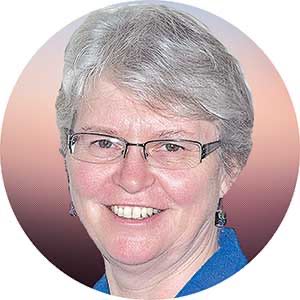This month, I will celebrate the fifth anniversary of my ordination. It has been a full and rich five years and I am grateful for the privilege of serving in this role. But I was also grateful for the many years that came before as well.
While it is true that I came late to ordained ministry, I did not come late to ministry itself. From the time when, as a young mother, I began to take seriously my participation in the life of the Church, I served on various groups and councils: ACW, vestry, parish council, diocesan synod, General Synod, synod executive, Council of General Synod, and many committees at all those levels. But ministry is about more than that. I taught confirmation classes, conducted baptismal preparation, led a Bible study group, and did pastoral visiting. But again, ministry is about more than that. I also served as a licensed lay minister, leading worship. But ministry is about more than that as well.
It is not a list of committees or roles. It is a response to the call of God to love our neighbour as ourselves and to follow Jesus who came, “not to be served but to serve” (Mark 10:45). It is to live as disciples.
In those years in ministry, I have known people who have lived out that call—caring for someone who is sick; looking out for a neighbour who needs help; making that visit or phone call to someone who is lonely. They often do so quietly, not looking for credit or thanks or even affirmation, but as a response to that call to faithful discipleship, a call which is for everyone. In living out that call, there is no hierarchy.
Sadly, it seems at times, the reality is that in our churches, those of us who have chosen to live out that call through ordination are someway more engaged in “real” ministry. Which is a perspective that comes from the society around us rather than from what is modelled by scripture and by Jesus himself. It is also not helpful in developing community. Jesus surrounded himself with ordinary people: people from various cultural groups and with different backgrounds. He didn’t seek out only those who were from an elite class. He created a community of faithful witnesses to share the good news he proclaimed and gave us a model to follow, a model of a community where each person is valued.
In our communities, we live out our baptismal covenant as we strive to continue in the apostle’s teaching and fellowship, resist evil, proclaim by word and example the good news of God in Christ, seek and serve Christ in all person, strive for justice and peace, respect the dignity of every human being and safeguard the integrity of God’s creation. We do that together, both lay and ordained, no one more important that the other. “For we are God’s servants, working together; you are God’s field, God’s building.” 1 Corinthians 3:9.


